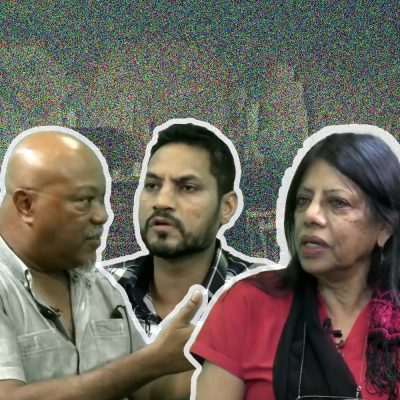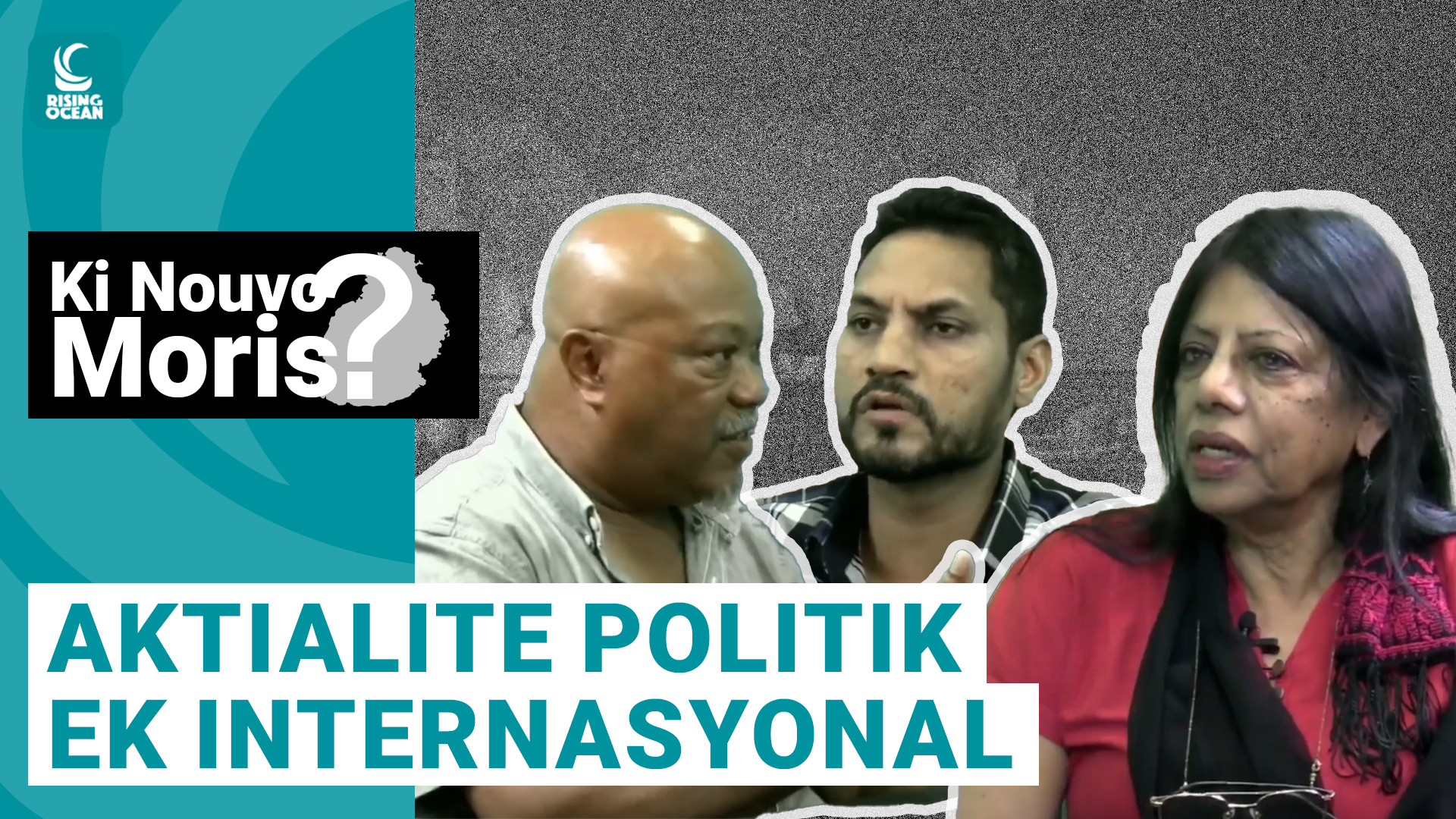Topics to be addressed:
-
The dismissal and resignation of Minister Vikram Hurdoyal.
-
Local democracy.
-
Financing of political parties.
-
The Israeli-Palestinian conflict.
The decisions of the ruling regime are once again in the spotlight with the dismissal and resignation of the Minister of Agro Industry. The official reason for this decision is not yet known. The political cauldron has not ceased to be in turmoil for the last 5 years. The world of politics is experiencing setbacks both in Mauritius and abroad. To address these themes, the show ki nouvo moris had as a guest during its weekly debate Joël Toussaint, the president of Journalist Association of Mauritius(JAM) as well as Nalini Burn, a committed citizen. The debate was hosted by Ashvin Gudday.
Nalini Burn begins the debate by saying that such policy measures as the dismissal of a minister are not to be taken lightly. The question that everyone has been asking is what the grounds for this dismissal are and if whether they are solid or not. Indeed, there are several scenarios that political observers have had in mind since this event, and it is above all this lack of communication on the reasons for this dismissal by the Prime Minister that succumbs all his questions.
“With all the scandals in which some ministers have been involved, this has not led to their dismissal, and the question that is on everyone’s mind is whether this is not a move chest, a strategy to attack before being attacked.”
What about democracy?
When it comes to local democracy, many people as well as political observers are saying that it no longer exists. There is no independence because the central government has a stranglehold on decisions making. Nalini Burn highlights that we have a so-called “decentralized system”, with a regional administration that is supposed to be endowed with an independence, however, the opposite is happening at the level of district councils and municipalities. Those operating in these regional establishments are unable to make decisions in the interest of their regions because there is a kind of control on the part of the central government. As a mater of fact, the elected representatives of the regional administrations deplore the fact that they do not have the opportunity to make projects to improve the daily lives of those living in their regions because the decisions are never approved.
“For a long time, there has been no local democracy in this country. Even the municipal elections have been postponed. It is not possible to leave these people in the District Council when the areas they are supposed to take care of are being devoid of infrastructure and improvement.”
Today, the government is too powerful to the point where it is putting pressure on professionals, says Joël Toussaint. This difference between the legislative and executive branches is crucial for the smooth running of a country. However, the executive becomes weak when there is an agreement between the Permanent Secretaries and the ministers.
What do you think of the Supreme Court of India’s ruling on election financing?
The decision of the highest court in India is a historic step forward in the way political parties are financed in the context of elections. Indeed, the decision was taken unanimously by the five magistrates who had adjudicate in this case. As a reminder, the magistrates consider that electoral bonds are « unconstitutional » and « manifestly arbitrary » and contrary to the voters’ right to information, because the system is based entirely on anonymity of the contributors. Nalini Burn notes that Mauritius lacks law such as the freedom of information. As a matter of fact, these laws are not included in the Mauritian constitution and as such, they cannot be referred to in a court of law, contrarily to India where it is fully enforceable.
“Mauritius is lagging behind in justiciability of the rights of its people.”
Joël Toussaint for his part says that since 2020, he has been denouncing that there is a kind of « racketeering » that happens before the elections. Some political parties are funded by corporations, whether it is for their election campaigns and so many other things.
Israeli-Palestinian conflict.
As for the decades-long Israeli-Palestinian genocide, the 25,000-death mark has already been passed since last year. Indeed, this tragic toll is unprecedented. Joël Toussaint points out that never before in history have journalists suffered so much persecution. It is true that day after day, many journalists are killed while carrying out their duty. This war also does not allow for the transfer of information, and this is what is more serious, says the journalist. The people who are trapped in this genocide have no means of communication with the outside world. Social networks block the transfer of information and journalists on the ground unfortunately cannot warn the outside world what is really happening.
To conclude, we see that the political world, whether in Mauritius or abroad, is experiencing problems. In Mauritius, democracy is under threat, and this is unfortunately not new and there is an urgent need to restore a balance in order to ensure the proper functioning of the country.
Watch full debate here:


